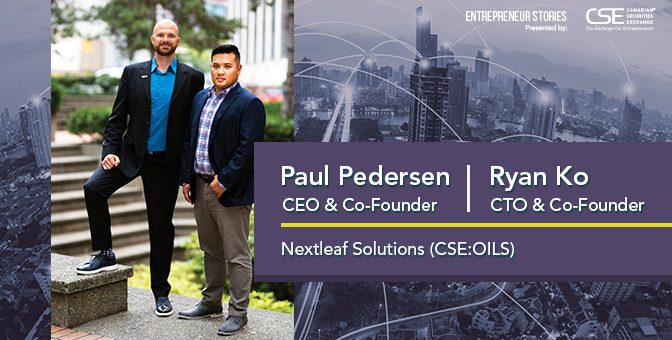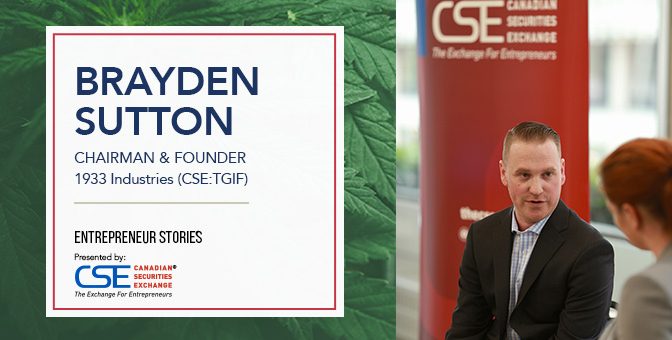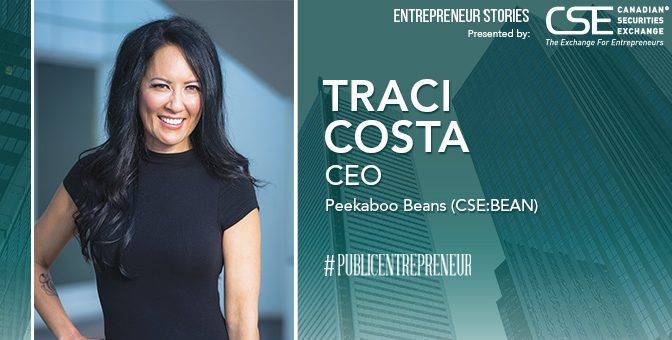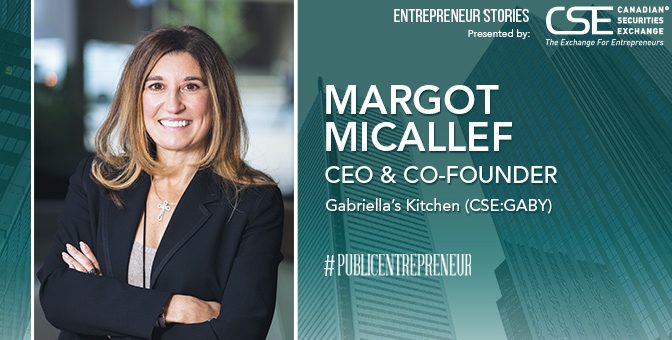Nextleaf Solutions (CSE:OILS) is a BC-based cannabis extraction technology company that takes pride in doing things just a little bit differently.
When most cannabis companies were thinking of cultivation, Nextleaf had its intentions set on the future of the cannabis industry: infused products. Since 2017, the company has focused on developing and acquiring the technology, processes, and formulations around extraction and post-extraction for cannabis concentrates, the precursor to every cannabis-infused product.
Co-Founder and Chief Executive Officer Paul Pedersen remembers the day he met soon-to-be Co-Founder and Chief Technology Officer Ryan Ko, who at the time was working on a novel extraction process aimed at producing highly refined oils derived from cannabis.
“When I met Ryan in 2016, he was doing things with extraction and molecular distillation that I had never seen before,” says Pedersen. “He was light years ahead of where large licensed producers were at with extraction and purification. That was the genesis of how it all started.”
The rest, as they say, is history.
With six issued patents – including the first issued US patent for industrial-scale extraction and purification of cannabinoids – and 23 pending in the United States, Canada, Mexico, Colombia, Jamaica, Europe, and Australia, Nextleaf’s intellectual property portfolio is growing quickly.
A glut of cannabis and hemp biomass in the market, coupled with a shortage of extraction and processing suppliers, means the company holds a notable position as one of a few extraction companies in Canada with a real solution.
“We have a head start,” says Pedersen. “Our strategy from day one was to be the absolute best at developing disruptive extraction technology, and to focus on the underlying methods that transform plant into product in a highly scalable way.”
Technology takes centre stage
Nextleaf’s patented technology covers a range of hardware and processes, and goes beyond traditional crude extraction, implementing additional processing measures aimed at higher standards of purity without sacrificing capacity.
The company produces a premium distillate and believes what differentiates its product from others is the additional purification and refinement steps found in its unique process. In short, it can turn failed crops of biomass into standardized, high-purity oil for use in a variety of infused products.
However, not all infused products are created equally.
Major issues with taste, smell, colour and even performance can be experienced when purchasing infused products found in unregulated markets. This is due to the chlorophyll, fats, lipids and other impurities in the crude extract used. Nextleaf’s highly concentrated THC and CBD distillates are odourless, tasteless, and standardized for potency – meaning the consumer will enjoy a reliable and repeatable experience with each product.
Scalability is key
Notably, the Nextleaf process is also truly scalable on an industrial level.
“Scalability gets massively overlooked,” explains Ko. “There are a number of companies that can produce an oil that is tasteless and odourless on a benchtop scale, but being able to do that on an industrial scale is key. We look at THC and CBD as ingredients. As with any ingredient, it comes down to the quality, and the cost to produce it.”
“Before you can formulate all these value-add products,” Ko states, “you’ve got to have that standardized element.”
Going beyond crude extraction allows the company’s PhD-led team to separate and isolate molecules, with the ability to reformulate those molecules to best suit the desired end product, whether that be edibles, vapes, gels, or other topicals.
Growing intellectual property
One area Nextleaf has remained hyper-focused on since 2017 is filing patents to develop and acquire the industry’s most advanced technology, processes, and formulations as related to cannabinoid extraction and purification.
“It’s been proven that the companies who get to enjoy the competitive advantage are the ones that have been first to secure unique intellectual property in their industry,” says Pedersen.
This summer, the company bolstered its IP portfolio by acquiring a US patent-pending hydrocarbon extraction process and award-winning formulation to make shatter, a cannabis concentrate.
For Nextleaf, 2019 and 2020 will focus on monetizing the company’s IP portfolio as consumer preferences switch from flower towards THC- and CBD-infused products, with the legalization of these products in Canada slated for this fall.
Through its commercialization partner, the company will provide processing solutions to licensed cultivators, and supply cannabis oil and extracts to qualified Canadian and international B2B partners under its own brand. Revenue will come from toll processing, white-label production, and licensing IP.
“We’ll start to commercialize our technology,” says Pedersen. “However, our primary focus remains on innovating and growing our intellectual property.” The company plans to double their portfolio in the next six months.
Pedersen also gave news of some major commercialization partnerships on the horizon.
One of those partnerships involves an exclusive supply agreement with BevCanna Enterprises, whose team brings experience in creating iconic beverage brands such as Mike’s Hard Lemonade and Vega.
“We have the technology to make water soluble distillate, and now, under their research licence, our partner BevCanna can begin to develop formulations and SOP’s for a portfolio of infused beverages leveraged through our IP,” adds Pedersen.
Promising future
The Canadian market for edibles and extracts is expected to reach more than $2 billion in 2020, according to a report from Deloitte. The report estimates that roughly $1.6 billion will be spent on edibles, followed by cannabis-infused beverages at $529 million and topicals at $174 million. It’s expected that the global market for alternative cannabis products will nearly double in the next five years.
With ample availability of cannabis and hemp biomass in Canada, and high-end extraction and processing capacity in short supply, Nextleaf is poised to take full advantage of what the company refers to as the next oil boom.
This story was originally published at www.proactiveinvestors.com on September 11, 2019 and featured in the Public Entrepreneur magazine.
Learn more about Nextleaf Solutions at https://www.nextleafsolutions.com/.




